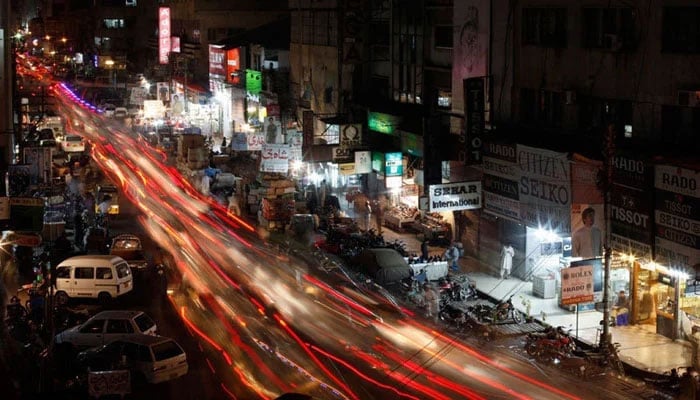Business
Steep price
字号+ Author:Smart News Source:Health 2025-01-13 17:49:05 I want to comment(0)
THE Hindu Kush-Himalayan region is in big trouble. A new study unveiled at the ongoing COP29 reveals that if high emissions continue, up to 80pc of the region’s ice could disappear, endangering the very survival of nearly a quarter of humanity that depend on it for water, food and ecosystem stability. The urgency of the matter cannot be overstated. Over the past decade, glacier melting has accelerated by 65pc compared to 2000-2010. This rapid rate of deterioration means we may soon hit the point of no return. It could have devastating implications: a rise in glacial lake outburst floods, disruptions in agricultural patterns, and compromised water security for billions. While regional cooperation, as advocated by Pakistan and other Hindu Kush nations at Baku, is crucial, the situation begs a global response. The developed world’s role is vital on three fronts. First, immediate and substantial emission reductions are non-negotiable. The State of Cryosphere 2024 report demands emergency-scale action to cut emissions by 40pc by 2030 — a target that primarily falls on the world’s largest emitters to achieve. Second, climate finance must flow more generously and equitably. As Prime Minister Shehbaz Sharif emphasised at COP29, this assistance must be grant-based rather than loan-based, ensuring vulnerable nations are not forced to choose between climate action and economic stability. The current system of climate finance, often entangling developing nations in debt, needs urgent reform. Third, technology transfer and capacity building must accelerate. The report indicates that with very low emissions, up to 40pc of glacier ice could be preserved, with some regions even showing potential regeneration beyond 2100. Achieving this requires developed nations to share green technologies and expertise more freely with affected regions. The current trajectory, where Nationally Determined Contributions would lead to a 2.3°C temperature rise by 2100, falls dangerously short. This path would trigger irreversible cryosphere changes, destabilising water cycles and threatening food security across the entire region. The solution lies in strict adherence to the Paris Agreement’s 1.5°C target through immediate, coordinated action. Time is running out, and every fraction of a degree matters. If wealthy nations fail to act decisively now, the world will bear witness to irrevocable change in an ecological region of critical importance. The consequences will reverberate for centuries to come.
1.This site adheres to industry standards, and any reposted articles will clearly indicate the author and source;
 Related Articles
Related Articles-
Dozens of casualties as Israeli forces attack Gaza school, barbershop
2025-01-13 17:37
-
King Charles' heart melts as Prince Harry, Meghan send sincere message
2025-01-13 16:02
-
Nicole Kidman reveals heartfelt future plans for her daughters
2025-01-13 15:38
-
Jennifer Aniston gives crucial advice to Selena Gomez ahead of wedding vows
2025-01-13 15:17
 User Reviews
User Reviews Recommended Reads
Recommended Reads Hot Information
Hot Information- From The Past Pages Of Dawn: 1974: Fifty Years Ago: Pakistan wants peace
- Blake Lively, Ryan Reynolds ditch Golden Globes amid Justin Baldoni legal drama
- Liam Payne death case gets major update as police arrests key suspect
- Blake Lively, Justin Baldoni drama continues in 'It Starts With Us'
- Remembering APS
- Nicole Kidman tearfully dedicates new honour to late mother: Watch
- Princess Charlene and her kids serve up fashion royalty
- 'Wednesday' Season 2 faces tough competition with hit Netflix shows
- BoP Exchange opens new branch
 Abont US
Abont US
Follow our WhatasApp account to stay updated with the latest exciting content













